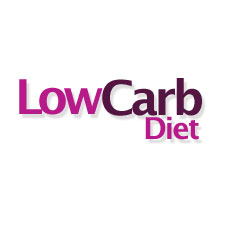Low Carb Diet

Dr. Robert Atkins fought tooth and nail to show the world how a low-carb plan can improve weight loss, lower cholesterol levels, increase energy and enhance overall wellness. With the second low-carb boom, the late Dr. Atkins wasn’t alone as plenty of other diet gurus hopped on the low-carb bandwagon, creating the likes of Protein Power, Carbohydrate Addicts Diet, The Zone, South Beach Diet, Sugar-Busters and others.
Low carb diets are also referred to as reduced carbohydrate, controlled carbohydrate and low glycemic diets. While some of the low-carb programs cut out starches and sugars, others concentrate on the glycemic index of the foods. The initial stages of low-carb diets are usually restrictive when it comes to carb intake.
However, the induction phase of Atkins is the most strict. Other plans allow for more carbohydrates, although the amount is less than the food pyramid calls for.
Although there are many different variations of the low-carb diet, the foundation is the same. They all call for a strict reduction of carbohydrate intake, replacing them with fats, fiber and proteins. When following a low-carb diet, at least 60 to 70 percent of caloric intake should come from fat with less than 10 percent coming from carbohydrates.
Low-carb advocates maintain that carbohydrates cause a rise in blood glucose, which causes a rise in insulin to process the glucose. The spike in insulin causes weight gain. By lowering the intake of carbs, the body burns carbohydrate stores and the body releases water. The number on the scale goes down due to the loss of water weight.
When the carbohydrate stores are emptied, the body burns fat for energy, a state known as ketosis. Because the body uses fat for energy, it is not stored in the body which contributes to weight loss.
When following a low-carb diet, bread, pasta, rice, cereal, dairy, crackers, cookies, popcorn, pretzels, potatoes, corn and other foods containing refined sugars are eliminated. However, the dieter is allowed to eat unlimited amounts of eggs, cheese, cream, butter, meat and other fats.
While some low-carb plans allow for saturated fats, others call for lean proteins, whole grains, fruits and vegetables. It all depends on the rigidness of the plan you select. Low-carb lovers report weight loss, better energy levels, balanced blood sugar and improved mental acuity.
Although there is research which proves a low-carb program has a positive effect on weight and lowering cholesterol, some experts warn that excess amounts of saturated fat can be harmful. Also, because dieters must get rid of entire food groups, it can be difficult to stick to the program over a long time.
